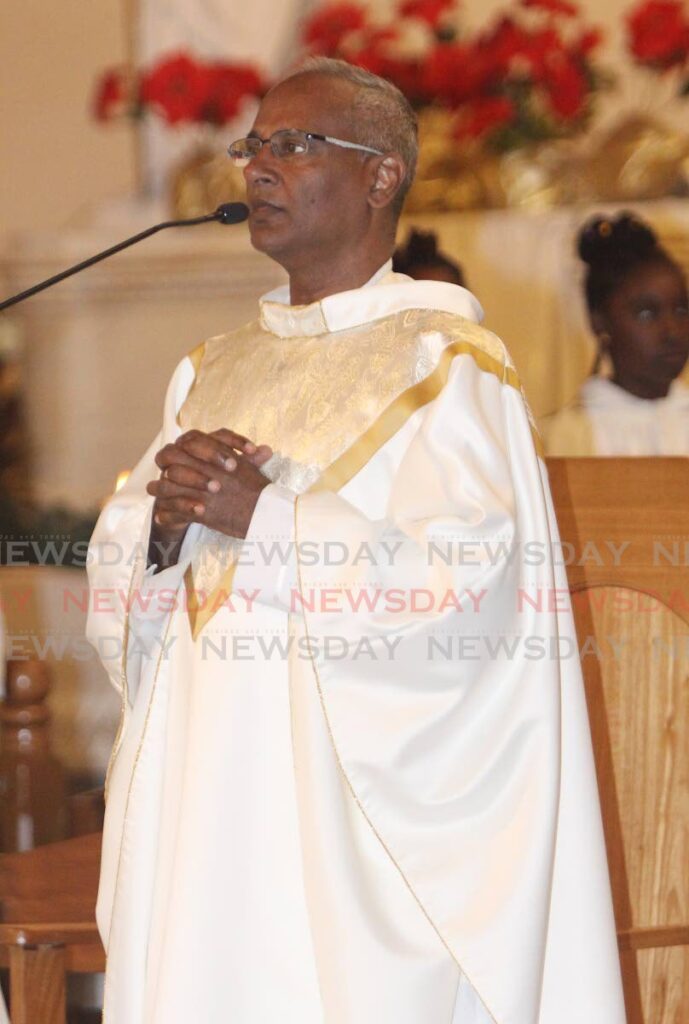Christmas and social equity

FR MARTIN SIRJU
RC Cathedral
WITH THE disenchantment of Christianity over the last generation, there is now a return to or fascination with ancient European deities. Some have argued in this regard that the notion of "incarnation" – "God assuming flesh" – is nothing new and that the Jesus narrative is simply a reformulation of ancient myths. So too with "virgin birth."
In the light of these neo-pagan narratives, there are a few claims about Christianity which we ought to remember. First, God did not send another prophet: he came himself, in all his fullness but emptied glory (Phil 2: 6-11). He pitched his tent among us as a fellow human being (Jn 1:14) but was without sin.
Second, his foster-father Joseph was of noble line (King David) but he was not, nor his mother. All lived like Palestinian peasants. They were poor, not dirt poor, but poor. His father was a carpenter or stone mason. Archeologists describe Nazareth as a filthy place, according to Jesuit author James Martin, in his book Jesus. The Son of God knew what it was like to live in the dumps.
Thirdly, no deity of any mythology ever suffered the indignities of this Human-God – vilified, spat upon, beaten and tortured, crowned with thorns, carried his cross amidst a jeering crowd and crucified like a common criminal. He had no army, he rode no horse. He was born among the poor, with smelly shepherds being specially invited guests and was soon a refugee due to the megalomania of Herod.
What then are some of the implications that flow from this kind of incarnation? First of all, God becoming human implies the human dignity of all. Philosophy may speak of that dignity and law may defend it, but it does not confer it. Only intimate transcendence becoming human does. It is not by accident we remember that dignity most at Christmas when our social graces reach their peak.
Secondly, while the incarnation proclaims inclusivity – “I bring you news of great joy to be shared by all the people” (Lk 2: 10-11) – and Singing Sandra sang “he come for one, he come for all,” he sided with the poor, lived among them and was one of them. His own form of death was solidarity with the poor and the powerless.
Thirdly, this child became someone, which is part of the evolutionary thrust of the Judeo-Christian tradition. Jesus was in the business of becoming and the becoming of others and of communities, hence the proclamation of a "kingdom." Christmas points to that evolution but does not sing its victory nor ground for hope. Only the resurrection (Easter) does that.
What kinds of activity then should Christmas (fulfilled in Easter) impel Christians to undertake? One of them surely is the betterment and upward mobility of the poor. TT is a predominantly Christian country (I say this with utmost respect to the other religions) and it is a Christian party for the most part that has been at the helm of its democracy. Doesn’t the state of our present society contradict Christmas?
Dr Joanne Paul in an Express article (18/12/23) entitled “Beematie from Balandra” points to the large degree of social inequity in rural areas, Beematie begging for a little more respect and consideration. Christianity is also a social morality but that is collapsing. To fix this many say we should fix the home. I agree. Too many homes lack strong spiritual and moral foundations. Broken and angry relationships litter the domestic landscape. But we need to fix education too because that and health were Beematie’s major concerns.
When 98 out of 100 scholarships go to non-governmental/denominational schools, we have a major equity problem. The spiralling crime rate is related as much to education as to family life.
Many Catholic religious congregations were born to service the poor and neglected. I am well aware that many poor attend our Catholic schools than media sensationalism purports, but the disproportion in performance is staggering.
I am also aware that there are excellent grads from many government secondary schools, but there is urgent need for government to develop at least one flagship secondary school in north, central and south to rival denominational ones. Equity would demand that enormous resources be put into them and assign them the most gifted teachers, social workers and administrator-principals.
Sunity Maharaj is right to question the beneficiaries of corporate sponsorship, with the likelihood of those schools already so advantaged gaining even greater advantage due to the likely strategic positioning of past pupils. This will not help our crime situation, which is not only mired in broken family life but poor educational performance. A preferential option has to be made for the neglected ones whose cause Jesus exposed and fought.
Christmas throws the spotlight on children in a special way. I hope this feast reminds us of the thousands of our own children with diminishing opportunities and impels us to see how as religious people we can bring much greater light to bear on our future.


Comments
"Christmas and social equity"